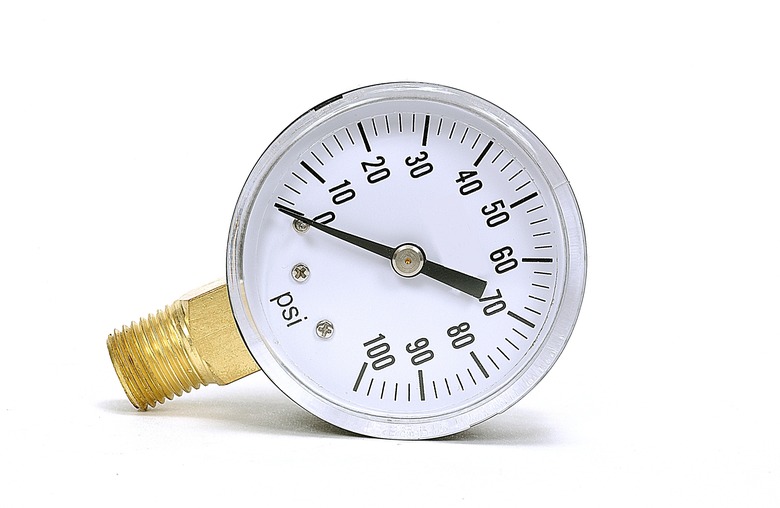How To Convert PSIs To KPIs
A single PSI, or "pound-per-square-inch," is the measure of force applied to a single square inch of flat surface. More accurately described as "pound-force per-square-inch," as single PSI represents one pound of pressure applied on one square inch of surface. A KPI, stands for "Kilo-pounds-per-inch." More accurately, KPI should be displayed as KPSI, or "kilo-pounds per-square-inch." A single "KPSI," is the measure of "kilo" of pounds per square inch, or 1000 pounds per square inch.
Step 1
Determine the PSI to be converted. PSI can be used to measure gas pressure, gravitational pressure or pressure of objects pressing against other objects.
Step 2
Divide the PSI value by 1000 to calculate the KPI, better known as the "KPSI." For example, if the PSI value is 45, the KPSI value is 0.045. A PSI value of 6700 will have a KPSI value of 6.7.
Step 3
Convert KSPI to PSI by reversing the process. Multiply the KPSI value by 1000 to derive the PSI value. For example, a KPSI value of 1 will have a PSI value of 1000.
Step 4
Report the findings with the value following by the unit. For example a KPSI value of 6.7 should be reported as "6.7KPSI." A PSI value of 490 is reported as "490 PSI."
References
Cite This Article
MLA
Shelton, Skip. "How To Convert PSIs To KPIs" sciencing.com, https://www.sciencing.com/convert-psis-kpis-8730963/. 24 April 2017.
APA
Shelton, Skip. (2017, April 24). How To Convert PSIs To KPIs. sciencing.com. Retrieved from https://www.sciencing.com/convert-psis-kpis-8730963/
Chicago
Shelton, Skip. How To Convert PSIs To KPIs last modified March 24, 2022. https://www.sciencing.com/convert-psis-kpis-8730963/
